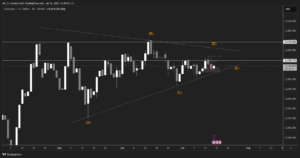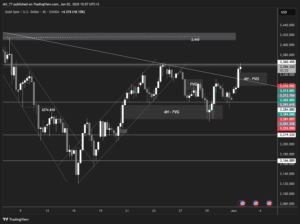
What Does The Zero-Covid Policy Entail?
China’s leader, Xi Jinping, was clear in his goal; he abides by a strict “dynamic zero Covid” goal, meaning zero positive cases throughout the 1.4 billion population in China. The “zero-Covid” policy is a public health policy where the emphasis is given on mass screening, close monitoring of close contacts, border restrictions, and lockdowns when necessary. It’s an “elimination” technique with the main goal being to close down all avenues for the virus to spread. This may seem unrealistic, considering how the most recent variant of Covid-19, Omicron, spreads like a wildfire. “Trying to halt Omicron is like an effort to prevent the wind,” Dr Michael Osterholm, an American epidemiologist and director of the Centre for Infectious Disease Research and Policy at the University of Minnesota, told CNBC. Yet, during a State Council meeting in China back in March, Sun Chunlan, the chief coordinator of China’s Covid-19 response announced that the country will maintain its zero-Covid policy and that local authorities should regard the policy as a “primary political duty” and a “national priority”.
Lockdowns and the Aftermath
A Covid-19 outbreak began in Shanghai, China towards the end of February 28th, 2022. This was followed by a strict lockdown to maintain the country’s zero-Covid policy, the largest one in China since the lockdown of Hubei more than two years ago. Whilst Shanghai, as well as dozens of other cities, remains tightly locked, Beijing is on high alert – with massive daily screenings and partial closure of services, the capital is desperate to avoid going into a lockdown too. Undoubtedly though, the strict isolation measures are taking a psychological toll on people, and have caused widespread fear, exasperation, and even violent altercations amongst residents and police officers or guards. Another aspect that has been heavily disrupted is the economic sector.
China’s Zero-Covid Policy and the Heavy Impact on the Economy
Without a doubt, enforcing citywide lockdowns and strict restrictions hurt the economy, both in China and worldwide, and the impact may be long-lasting. “The city-wide lockdown in Shanghai is a big deal,” said Qi Wang, chief executive officer of MegaTrust Investment, before adding “This is one risk that may not go away easily with time”. Indeed, according to analysts at Nomura, with 45 cities in China accounting for 40% of the country’s GDP and currently being under full or partial lockdowns, China’s economy is heading towards a dark path.
Concerns over the impact of future rate hikes by the US Federal Reserve have caused global investors to start selling stocks, with Chinese tech stocks taking a substantial hit; Alibaba (NYSE: BABA), Tencent (OTC: TCEHY), and Baidu (NASDAQ: BIDU) closed significantly lower last week, both in Hong Kong and the US markets. Overall, China’s stock markets took a hard hit with the main benchmark stock index down 17% so far this year.
Last week, the EU Chamber of Commerce in China released the findings of a survey exploring, among others, how China’s introduction of draconian Covid-19 containment measures impacts European businesses operating in the country. The findings indicate that:
- About 75% of the respondents, report that their operations have been heavily and negatively impacted by China’s zero-Covid policy, with the most prominent impact noted on logistics/warehousing, business travel, and the ability to conduct meetings face-to-face.
- Approximately 60% of respondents said that due to the stringent Covid-19 restrictions, they were lowering their revenue forecasts for the year, some cutting as much as 6% to 15% of their expectations.
- As a result of the strict measures, 78 percent of respondents feel less willing to continue investing in China.
“Our members are willing to weather the current storm, but if the current situation continues, they will of course increasingly evaluate alternatives to China,” said Jörg Wuttke, president of the European Union Chamber of Commerce. “A predictable, functioning market is better than one that, despite having high growth potential, is volatile and suffers from supply chain paralysis.”
Disclaimer: This article is not investment advice or an investment recommendation and should not be considered as such. The information above is not an invitation to trade and it does not guarantee or predict future performance. The investor is solely responsible for the risk of their decisions. The analysis and commentary presented do not include any consideration of your personal investment objectives, financial circumstances, or needs.




